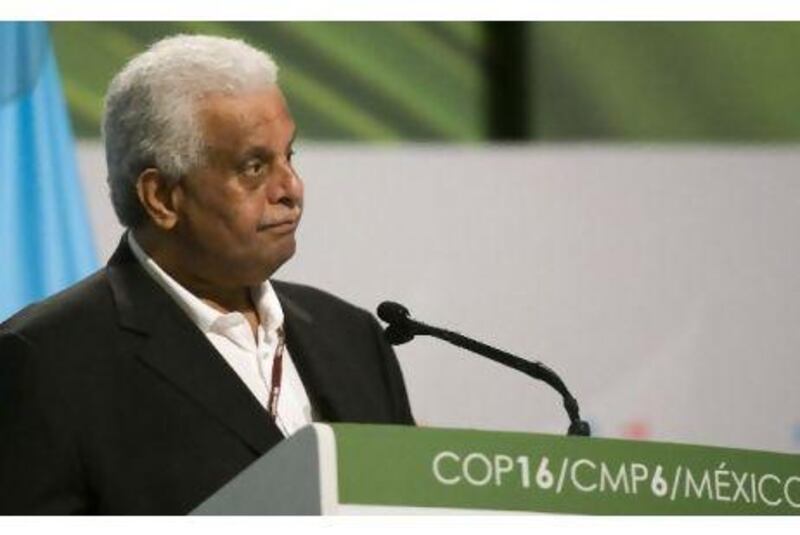CANCUN // The Qatari deputy prime minister, Abdullah bin Hamad al Attiyah, said yesterday that the use of natural gas instead of oil or coal was helping countries to reduce emissions.
Qatar supported efforts to limit climate change, as long as the solutions were scientifically and economically sound, he told the Cancun climate summit.
The country has the world's third-largest natural gas reserves and is the world's largest supplier of liquefied natural gas. In November, it submitted a proposal to the UN Framework Convention on Climate Change to finance carbon capture and storage, a technology that buries carbon emissions underground.
It has also set up a Dh257 million facility, the Qatar Carbonates and Carbon Storage Research Centre, to research the technology. However, the country's climate vision yesterday met with opposition from renewable energy groups and environmental organisations.
Natural gas is the cleanest of fossil fuels and emits about 40 per cent less greenhouse emissions compared with coal, which is the dirtiest form of fossil fuel.
Experts said that while natural gas was important to wean the world off coal, it should be looked at as a transitional technology that would allow for zero-emission technologies that harvest renewable energy.
Ramon Hummler, the chairman of Global Wind Energy Council's Latin America committee, said hydro power and natural gas could buy time to make the shift from highly polluting sources of fossil fuels to renewable technologies.
"In that sense, natural gas is a perfect complementing technology for wind power," he said.
Naoyuki Yamagishi, the climate change programme leader at the World Wide Fund for Nature (WWF) in Japan, also said natural gas had an important role to play. But he cautioned against promoting it as an ultimate solution for the reduction of dangerous effects to the climate.
"We cannot use that as an excuse from investing in renewable energy and energy efficiency," he said.
Mr Hummler and Mr Yamagishi said their organisations opposed the move to finance carbon capture and storage under the UN's clean technology scheme.
"What we think is that every single kind of technology that is able to reduce carbon emissions is a friendly technology," said Mr Hummler. "Having said that, what we need to address is an increasingly difficult issue, which is that economic resources are limited. If we need to hurry up in reducing carbon emissions, what we need to do is exploit and develop renewable energy technologies that are ready to contribute to carbon emission reductions."
Mr Yamagishi said that environmental organisations were pressuring world leaders to agree to stop the rise of emissions by 2015. After that time, emissions would have to start going down, he said.
"Carbon capture and storage is not going to be operational until 2030, on a commercial scale," he said.
The WWF, he said, regarded the idea as a "necessary evil" that could buy the world time while it transformed its energy systems.






